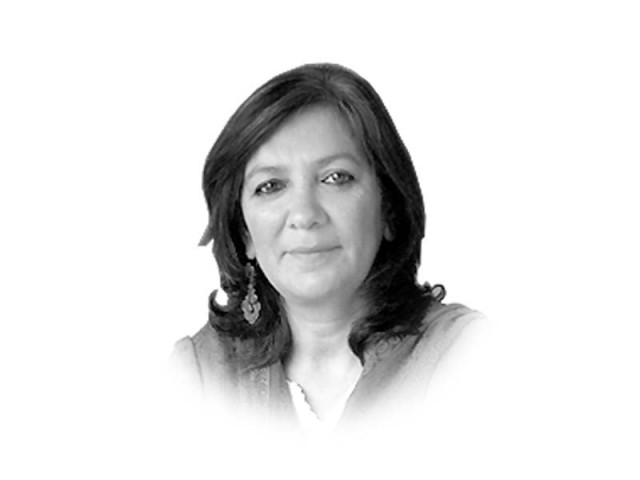Modi & the Two-Nation Theory
I believe it is misreading of political situation to believe Modi has cast shadow between India’s Hindus, Muslims.

The writer is an independent journalist based in New Delhi and writes for several Indian newspapers
The fact that I was shocked perhaps shows how little I know Pakistan — despite having been covering this country for years as a journalist and some of my best friends live here. But Raza Rumi, a friend and one of Pakistan’s best-known analysts, essentially says the same thing in this paper that Modi’s astounding victory in India confirms the Two-Nation Theory in the mind of the average Pakistani.
If this is the case, then the chasm between India and Pakistan is not only deeper, but much graver than I thought. Modi is certainly perceived as the man under whose rule as many as 1,000 Muslims were killed in the 2002 Gujarat riots. Although he has never been personally indicted, one of his closest former colleagues, former minister for women and child affairs Maya Kodnani, was sentenced to 28 years in prison for her role in the killing of 97 people in Ahmedabad’s Naroda Patiya area. Another member of the Bajrang Dal, Babu Bajrangi, will spend the rest of his life in jail.
In my understanding, while Pakistan is certainly concerned that Modi has become the prime minister of India, it has already decided that India’s 14 per cent Muslim population — larger than Pakistan’s — will now bear the brunt of his actions. In fact, I have several times been asked how India’s Muslims are going to fare under Modi.
So let me make it clear: I believe that it is a misreading of the political situation to believe that the advent of Narendra Modi has cast a large shadow between India’s Hindus and Muslims. Certainly, most Muslims voted to strengthen the hand of the candidate that was best suited to defeat the BJP candidate — but remember that in 99 per cent of the cases, this candidate was also Hindu.
I am not going to stoop so low as to argue against or in favour of the Two-Nation Theory. Suffice to say that despite the Congress party’s abysmal performance (44 seats in the Lok Sabha) and the pro-Dalit Bahujan Samaj Party (BSP)’s inability to even open its account, the BJP has won only 31 per cent of the national vote.
Certainly, Modi and his team deserve credit for strategising their victory, creating a combination of several waves that intelligently targeted caste, class, Hindu vs Muslim polarisation, key alliances in key states with Dalit and other regional parties. But the fact is that India is such a diverse country that no one reason can hold good.
As for India’s secular fabric that everyone seems so worried about these days, let me say that if BJP’s senior leader Murli Manohar Joshi had not been summarily evicted from Varanasi and moved to Kanput to fight his election, he would have definitely lost.
One way of understanding Modi would be to check out Bengali Prime Minister Sheikh Hasina’s warm greetings to him — this, despite his comments that all Muslim refugees will have to leave India and return to Bangladesh. The subtext of that comment? Hindu refugees are welcome to stay. But the truth is that Hasina’s greetings have been made in the wake of a bruising election during which she banned the Jamaat-e-Islami. Hasina is playing the long game. She wants Modi’s support on the Teesta waters accord as well as the land boundary accord with India.
Believe it or not, the rest of South Asia also seems quite keen on Modi. There is Sri Lanka’s Mahinda Rajapaksa. Modi’s team had also reached out to the Maldivian Democratic Party’s leader, Mohamed Nasheed, to get a sense of the politics in the Indian Ocean region.
Make no mistake, this is an intensely challenging time for India. Modi has never apologised for the Gujarat riots and a big question mark remains on how he will manage the immense diversity of the country. If he can see that India is bigger than Gujarat, that diversity is a necessity not an option and that the rule of law — irrespective of whether you’re a sun-worshipper or not — must prevail, then he would prevail. If not — well, then, there’s always an election five years away.
Published in The Express Tribune, May 21st, 2014.
Like Opinion & Editorial on Facebook, follow @ETOpEd on Twitter to receive all updates on all our daily pieces.
















COMMENTS
Comments are moderated and generally will be posted if they are on-topic and not abusive.
For more information, please see our Comments FAQ